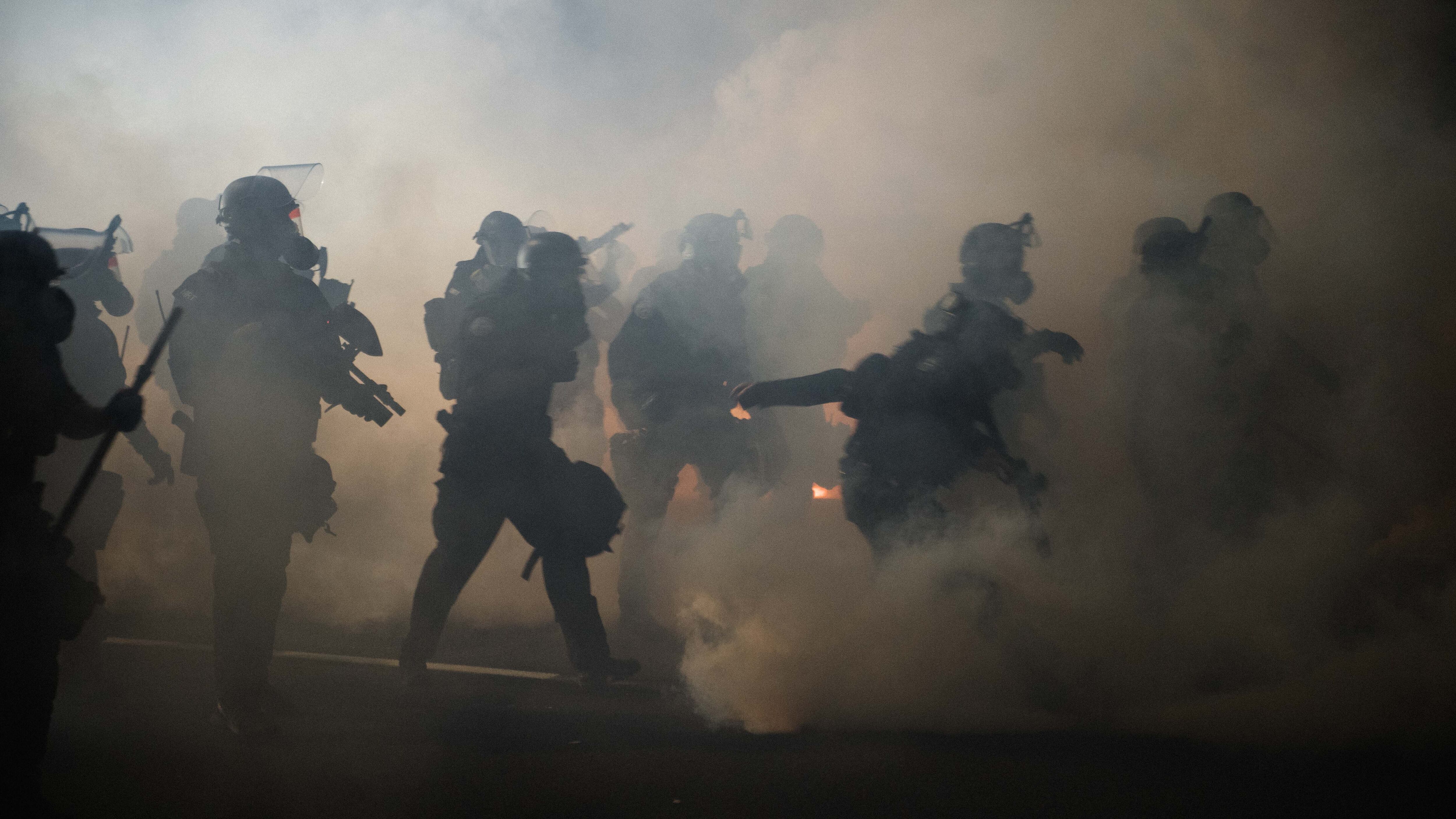A Portland police officer under investigation for striking a Black homeowner and shoving three other people at protests has been removed from street duty after WW raised questions about his actions.
The officer has so far been identified only by the number on his riot helmet: 67. In the past month, WW has reported four separate incidents in which "Officer 67" allegedly used excessive force. His actions have sent at least three people to the hospital, including Elijah Warren, who says Officer 67 struck him from behind Sept. 5 as he complained to other officers about tear gas seeping into his Southeast Portland home.
On Oct, 19, Mayor Ted Wheeler's office confirmed to WW that Officer 67 was one of five officers removed from policing protests amid investigations into their conduct. The removal of the five officers from street duty was announced Oct. 16 as part of a modest slate of reforms, including requiring officers to display a three-digit number on their helmets and uniforms.
But the Portland Police Bureau and the mayor's office declined to reveal the name of Officer 67, even though he has been removed from street duty. Wheeler, who also serves as the city's police commissioner, says he would prefer to make all the officers' names public, but he's been advised by the City Attorney's Office not to do that.
"My preference as mayor is that we provide as much information as possible," Wheeler tells WW. "But the City Attorney's Office says legal issues and contractual obligations prevent us from doing that."
The secrecy surrounding the officer's identity is extraordinary, given that until May, all officers wore their names on their uniforms. But after nightly protests began in Portland following the killing of George Floyd, officers began taping over their name tags. The bureau said officers were at risk of being "doxxed," having their names, addresses and other personal information shared on social media.
That safety rationale for not displaying officers' names on their uniforms now extends to not revealing their names in almost any unflattering context. The city won't release the names of officers under investigation or cops who have been taken off street duty. Last Sunday, city officials released officer pay data to The Oregonian—and withheld the names of hundreds of officers.
Wheeler says he's not thrilled about that. He says officers convinced city officials they could be doxxed if their names were disclosed. The mayor says he's sympathetic to officers' desire to keep themselves and their families safe, but worries the bureau is overreacting.
"I've been doxxed as much as anybody in this community," Wheeler says. "I know what the risks are. My preference as mayor is that we provide as much information as possible."
City officials, speaking on background, say a combination of the city's contract with the Portland Police Association, past practices, and the Oregon Public Records Law makes them reluctant to name officers accused of bad behavior. Arbitrators have repeatedly overturned city discipline of police officers, including high-profile terminations.
The city believes that naming officers prior to discipline being handed down may give the union ammunition to say officials prejudged an officer by naming him. The union contract also calls on the city to reprimand officers in a way "least likely to embarrass" the officer. And finally, the public records law conditionally exempts details of an investigation from disclosure, so while the city could reveal an officer's name, officials fear that doing so would lessen the chances of making any discipline stick.
The city's consistent refusal to release the name of the officer wearing helmet 67 comes even as he has for weeks been identified on social media by leftist activists without incident.
He was removed from street duty following two stories by WW in the past month. In the second, two journalists and an activist described him assaulting them. One video shows him shoving a journalist to the ground where she twisted her ankle and had to seek medical attention. In another, he yanks a Black woman's arm then throws her to the concrete at a protest downtown. One woman says he knocked her down on two separate occasions.
In conversations with Chief Chuck Lovell, Wheeler says he's encouraged the bureau to take seriously the public's desire for greater transparency. "Right now," Wheeler says, "the most important thing the bureau can do is rebuild community trust."

